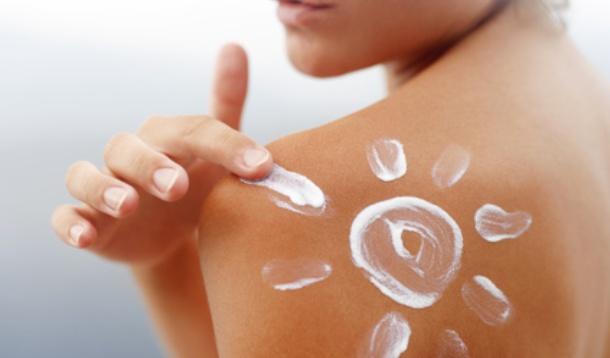
It's officially summer!
And that means it is time for my annual sunscreen lecture. Yes, my friends are sick of me warning about sun tanning, sun exposure, avoiding excessive light exposure, proper protection when out of doors . . . . . . . .
Yes, yes all my dear friends; I hear you - but I will continue to lecture.
Here's why proper skin protection should be taken more seriously:
1. Skin Cancer is the most diagnosed cancer in North America at 3.5 million new cases every year.
2. Skin Cancer is deadly. In fact, compared to breast cancer statistics, it is just as lethal.
3. Skin Cancer is easily prevented.
Which brings me to the topic of the day - homemade sunscreens. I am officially going on the record as saying these home remedies are not a good idea for proper sun protection. Now, I am not talking about the complete nonsense of using products and ingredients that have no proven sun protection factor. I will not even discuss these claims as they are soundly unfounded and completely incorrect. I am talking about using approved sunscreen ingredients (of which there are only 20 in Canada) - which are readily available at most drug stores - to mix a home concoction and thinking it will provide an adequate SPF level.
The internet is full of such home remedies and they seem pretty easy to create:
Most of the recipes look something like this -
To make 100 mL of sunscreen mix together:

According to this recipe you would have an SPF rating of 25-35.
Except you won't.
Here's why:
1. Zinc Oxide is not made for home mixing
It is a very powerfully charged particle that when mixed into a formula tends to separate from other ingredients and clump to itself thus reducing any effectiveness it may have as a sunscreen. Without complete emulsification, at high speeds, Zinc Oxide actually is about half as effective as an SPF. No one has the type of equipment in their kitchen, to mix Zinc Oxide at the needed capacity to create an effective SPF product.
2. Mis-measuring creates uneven distribution
Even if you could mix the ingredient effective measurements must be incredibly precise - to the nanogram. It's not like mixing cookie dough (and even that needs to be pretty precise). Cosmetic chemistry is a science, not a guessing game. If the ingredients are mismeasured the coverage provided will be incredibly uneven thus creating different SPF ratings across the body. This is not an effective way to protect the skin.
3. Degradation
A consumer cannot buy the preservatives needed to create stability in a sunscreen. Easily contaminated by microbes and bacteria sunscreens (and all cosmetics for that matter) need effective preservatives to ensure each application is clean. From the moment a home remedy is made it actually has a shelf life no longer than perishable foods in your fridge, and each day that stability is slightly less. The only application (assuming it was made perfectly) which will be of any benefit is the very first. After that the integrity of the mixture is compromised.
While home mixed sunscreens might seem like a great way to save money (sunscreens start at about $20 for 100mL for a quality formula) it is important to remember that these are actually classified as non prescription drugs. Just like you wouldn't try to make your own aspirin, or cough syrup, or even antiseptic ointment, making a home version of sunscreen is simply not a great idea.